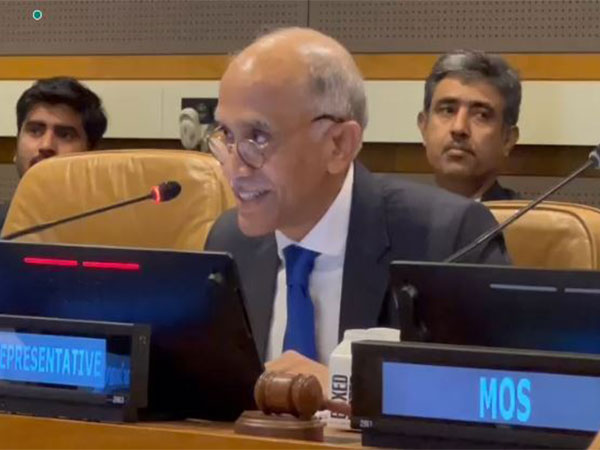Nepal SC issues show cause notice to President over citizenship bill
Sep 25, 2022

Kathmandu [Nepal], September 25 : The Apex Court of Nepal on Sunday issued a show cause notice to the office of the President Bidhya Devi Bhandari for not authenticating the citizenship bill passed by both the lower and upper houses of the country's Parliament.
A single bench of Justice Hari Prasad Phuyal ordered the President's Office to submit the reason for not authenticating the bill to the Supreme Court, within 15 days.
Five separate writ petitions were filed on Thursday against the Office of the President. The writ petition was filed by an advocate Sagar Baral, a student from Tribhuwan University, Raj Baral and Kathmandu School of Law, Abinesh Adhikari and a resident of Morang's Rangeli Municipality, Dev Sharma.
In the writ petition, the Office of the President has been made an opponent in the case as President directly can't be indicted in any of the cases.
The petitioners have claimed President Bhandari did not fulfil the constitutional obligation as per Act 113 (4) of the Constitution of Nepal seeking a mandamus from the apex court.
The petitioners also have claimed that the President doesn't have the right of discretion as per the constitution and also have asked the verdict from the court over the case to be set as precedent.
It is also claimed that the latest decision of the President has jolted the fundamental human rights ensured by the constitution in Articles 10 to 15.
Nepal President Bidhya Devi Bhandari on Tuesday midnight let the deadline for authenticating Citizenship Bill sent by the Federal Parliament pass.
President's political advisor Lalbabu Yadav confirmed that Bhandari has refused to authenticate the bill "in order to safeguard the constitution."
As per the provision, the president is constitutionally bounded to authenticate any bill that is resubmitted by the House after sending it back to the House for reconsideration once.
Tuesday past midnight was the deadline for the president to authenticate the bill, which has been missed, leading the nation into a situation of a constitutional crisis.
The Constitution of Nepal -2072 only gives the timeframe of 15 days to the President to authenticate the bill. The controversial citizenship bill was sent to the president by the then Speaker of the house Agni Prasad Sapkota for the second time on September 5.
Therefore, as mentioned in Article 113, Sub-section 4 of the Constitution, the President had to certify it if the same Bill was submitted for authentication for the second time.
"If the President returns a bill with a message, both Houses will reconsider such a bill and if such a bill is passed as presented or resubmitted with amendments, the President will certify it within fifteen days of its submission," according to the Constitution.
Earlier on August 14, President Bhandari returned the Citizenship Bill passed by the House of Representatives and the National Assembly and sent for authentication. She had sent a seven-point message to inform the federal parliament and for deliberation, and another eight-point message to draw attention.
Even though the President returned the Bill to the House for reconsideration, the House of Representatives and the National Assembly made no changes to the Bill.



















